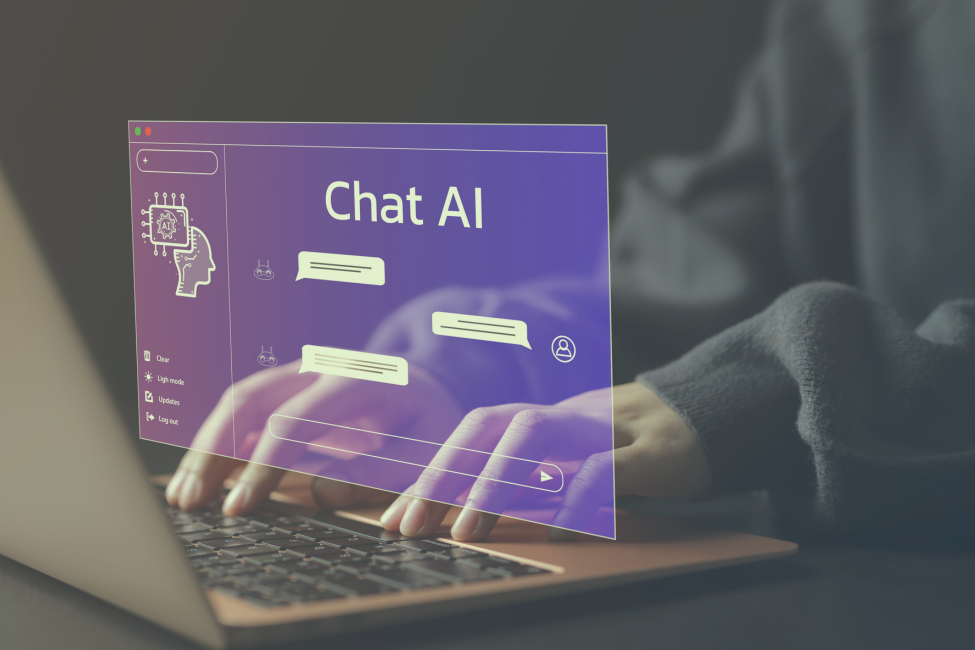The Digital Transformation of HR Practices
The HR landscape has undergone significant changes, with digital technology reshaping recruitment practices. This shift from paper-based systems and in-person interviews to an era dominated by HR technology highlights innovation and efficiency. Adopting HR technology is more than a trend; it’s a strategic move to enhance recruitment efficiency. In today’s competitive talent market, leveraging the latest HR technology is crucial. It serves as a key differentiator for businesses aiming to efficiently attract, engage, and retain top talent.

The Transformation of Recruitment through HR Technology in 2024
The Shift from Traditional Methods
The shift from traditional recruitment to HR technology in 2024 marks a major change in talent acquisition. The old days of manually reviewing resumes and lengthy initial screenings are over. Also gone is the sole reliance on face-to-face interviews. Now, HR technology in 2024 automates these tasks. This reduces the time and resources needed for hiring. It also improves the recruitment process’s quality.
Addressing Modern Challenges with HR Technology
The role of HR technology in modern recruitment practices cannot be overstated. As HR professionals navigate the complexities of the current job market, including the expectations of a digitally savvy generation and the necessity for remote work options, HR technology offers solutions that address these challenges head-on. From AI-powered tools that facilitate resume parsing and candidate matching to sophisticated analytics predicting the best fits for a role, HR technology empowers HR departments to meet these demands efficiently. Moreover, this technology plays a crucial role in eliminating biases, fostering diversity, and ensuring a more inclusive recruitment process.
By integrating HR technology into their 2024 recruitment strategies, companies not only streamline their HR processes but also position themselves as forward-thinking employers. This strategic move not only enhances recruitment efficiency but also significantly improves the overall workflow, setting a solid foundation for sustained success in an ever-evolving talent landscape.
Revolutionizing the Recruitment Landscape
The adoption of HR technology has fundamentally transformed the recruitment process for businesses worldwide. By leveraging the latest advancements in technology, companies can significantly streamline their recruitment operations, leading to substantial savings in time and resources. This section delves into the myriad benefits that HR technology offers in reshaping the way organizations attract, screen, and hire candidates.
Key Benefits of HR Technology in Recruitment for 2024
Enhanced Candidate Quality
One of the most significant advantages of integrating HR technology into recruitment strategies is the marked improvement in the quality of candidates. Advanced algorithms and AI-driven tools can sift through vast amounts of data to identify candidates who not only match the job requirements but also align with the company culture. This precision in candidate selection ensures that HR professionals focus their efforts on engaging with the most promising prospects.
Faster Hiring Cycles
The automation of repetitive tasks, such as resume screening and initial candidate assessments, courtesy of HR technology, significantly accelerates the hiring process. This efficiency enables HR departments to fill positions faster, reducing the downtime and productivity loss associated with vacant roles. Quick hiring cycles are particularly crucial in today’s fast-paced work environment, where the ability to rapidly onboard skilled talent can provide a competitive edge.
Reduced Operational Costs
Implementing HR technology solutions contributes to a noticeable reduction in the operational costs associated with recruitment. Automated systems minimize the need for manual labor in various stages of the hiring process, from candidate sourcing to initial screening. This not only cuts down on the hours spent per hire but also allows HR professionals to allocate their resources more effectively towards strategic tasks.
AI: The Game-Changer in Recruitment Efficiency

Transforming Recruitment with AI-powered Tools
Artificial Intelligence (AI) stands at the heart of the revolution brought about by HR technology in the recruitment domain. AI-powered tools such as resume parsing, candidate matching, and predictive analytics are redefining efficiency and effectiveness in talent acquisition. This section explores how these innovative tools are making the recruitment process more streamlined, equitable, and insightful.
Resume Parsing and Candidate Matching
AI-driven resume parsing technology automates the extraction of relevant information from resumes, translating it into a structured format that is easily comparable across candidates. When coupled with candidate matching algorithms, this technology ensures that recruiters are presented with a shortlist of applicants whose skills, experience, and qualifications are best aligned with the job criteria. This precision not only saves time but also significantly enhances the match quality between candidates and job roles.
Predictive Analytics: Forecasting Hiring Success
Predictive analytics in HR technology uses historical data patterns and machine learning algorithms to forecast outcomes in the recruitment process. This can include predicting the success of a candidate in a role, the likelihood of a candidate accepting an offer, or identifying the recruitment channels that yield the highest quality candidates. By providing actionable insights, predictive analytics enables HR professionals to make data-driven decisions that improve recruitment outcomes and minimize biases.
Integrating AI into HR technology streamlines recruitment and brings objectivity and fairness, once hard to achieve. Looking ahead, AI’s ongoing evolution in HR tech is set to boost efficiency and effectiveness even more. This makes AI an essential tool for today’s HR professionals.
Breaking Barriers with Video Interviewing Platforms
Expanding Recruitment Horizons
In the realm of HR technology in 2024, video interviewing platforms stand out as a powerful tool for transcending geographical and logistical limitations in the recruitment process. These platforms offer a suite of benefits that not only streamline the hiring process but also enhance the quality of candidate engagement and evaluation.
Advantages of Video Interviewing
Conducting Remote Interviews
One of the most significant advantages of video interviewing platforms is their ability to facilitate remote interviews. This feature is vital in the global job market, where the ideal candidate might not be local. HR technology lets companies connect with candidates globally. This ensures that distance isn’t an obstacle to finding top talent.
Minimizing Scheduling Conflicts
The flexibility offered by video interviewing platforms helps significantly reduce scheduling conflicts. Candidates can often record their interviews at a time that suits them best, which can then be reviewed by hiring managers at their convenience. This flexibility ensures that the recruitment process moves forward smoothly without delays caused by coordinating schedules.
Engaging with a Global Talent Pool
HR technology and its advancements in video interviewing platforms allow companies to tap into a global talent pool. By removing geographical constraints, organizations can diversify their workforce and bring in unique skills and perspectives from around the world, enriching the company culture and driving innovation.
Deeper Candidate Insights
Video interviews can provide deeper insights into candidates earlier in the recruitment process. Seeing and hearing candidates respond in real-time allows hiring managers to gauge communication skills, cultural fit, and other intangible qualities that might not be apparent from a resume alone. This depth of insight helps in making more informed hiring decisions.
Seamless Integration: The Backbone of Effective HR Tech Implementation
Ensuring Cohesive Recruitment Ecosystems
The successful implementation of HR technology hinges on its seamless integration with existing HR systems. Integration is critical for creating a cohesive ecosystem that streamlines workflows, enhances data accuracy, and facilitates better decision-making.
The Importance of Integration
Centralized Candidate Information
Integrating video interviewing platforms and other HR technology solutions with existing HR systems ensures that candidate information is centralized. This centralization eliminates data silos, making it easier for hiring teams to access and share information, thereby enhancing collaboration and efficiency.
Streamlined Communication
Effective integration facilitates streamlined communication within the recruitment team and with candidates. Automated notifications, updates, and reminders can significantly improve the recruitment workflow, ensuring that all stakeholders are informed and engaged throughout the process.
Enhanced Analytical Capabilities
A key benefit of integrating HR technology solutions is the enhancement of analytical capabilities. By centralizing data from various sources, companies can generate comprehensive reports and insights, enabling them to assess the effectiveness of their recruitment strategies and make data-driven improvements.
The integration of HR technology into existing HR systems is not just a technical necessity but a strategic investment in the future of recruitment. By building a seamless and integrated HR technology ecosystem, companies can leverage the full potential of these tools to streamline their recruitment process. Further engaging with a diverse global talent pool, and make more informed hiring decisions.
Mobile Recruitment: Expanding Reach and Enhancing Candidate Experience

Embracing a Mobile-First Approach
In the fast-changing world of HR technology, mobile recruitment platforms are key for updating recruitment strategies. As smartphones and mobile devices become more common, a mobile-first approach is crucial. This approach helps companies attract top talent in the digital era.
The Significance of Mobile-Friendly Platforms
Broadening Candidate Reach
Mobile-friendly recruitment platforms significantly expand an organization’s reach, allowing them to connect with candidates on a global scale. In an era where job seekers increasingly rely on mobile devices for job searches, HR technology ensures that opportunities are accessible to a wider, more diverse pool of talent, irrespective of their location.
Enhancing the Candidate Experience
The optimization of recruitment processes for mobile devices greatly enhances the candidate experience. Simple, intuitive application processes, mobile-responsive design, and easy access to information contribute to a positive first impression, increasing the likelihood of application completion and engagement. HR technology prioritizes these aspects, ensuring that candidates encounter minimal barriers when expressing interest in a role.
Throughout this exploration of HR technology, it’s clear that the future of recruitment lies in embracing technology to streamline processes, expand candidate reach, and enhance the overall recruitment experience. From mobile recruitment platforms to innovative uses of blockchain and augmented reality, the potential for transformation in the recruitment sector is vast.
As businesses strive to remain competitive in the talent market, the integration of these technologies into recruitment strategies is not just advisable but essential. By adopting HR technology, companies can save time, improve efficiency, and secure the best talent. To begin or advance your journey with cutting-edge recruitment technology, request a demo from Gotoro today. Explore how our solutions can revolutionize your recruitment process and help you stay ahead in the evolving landscape of HR technology.


